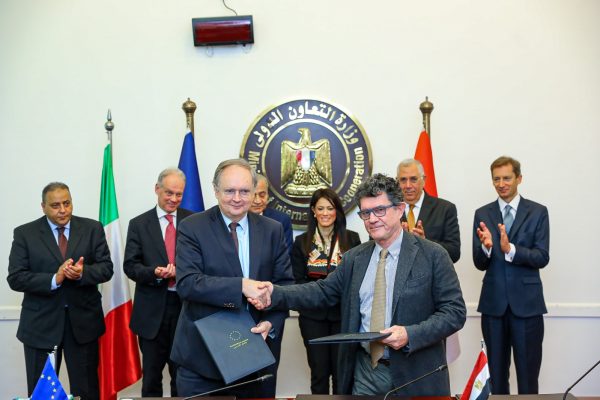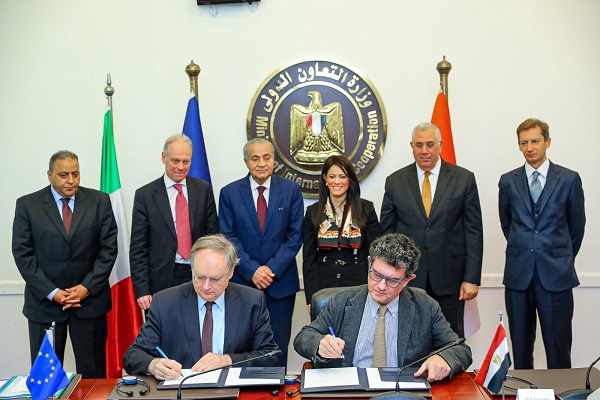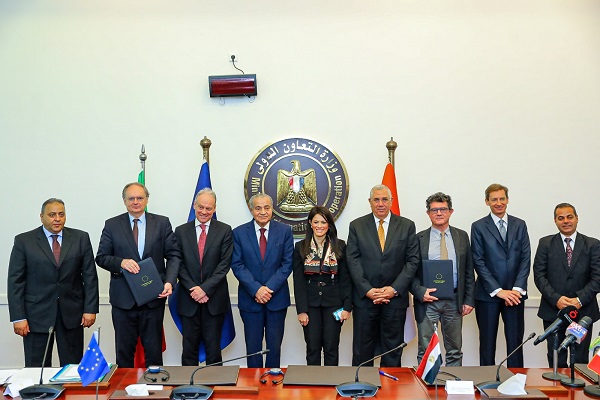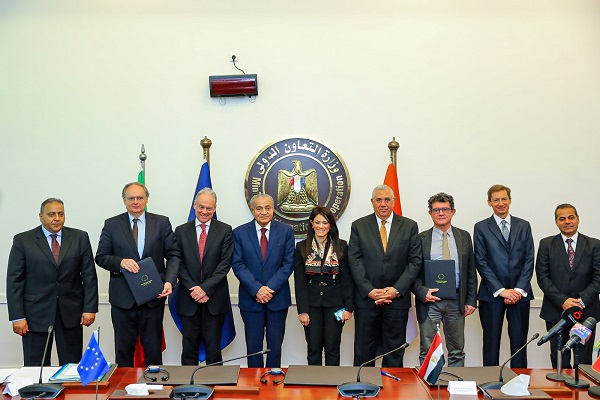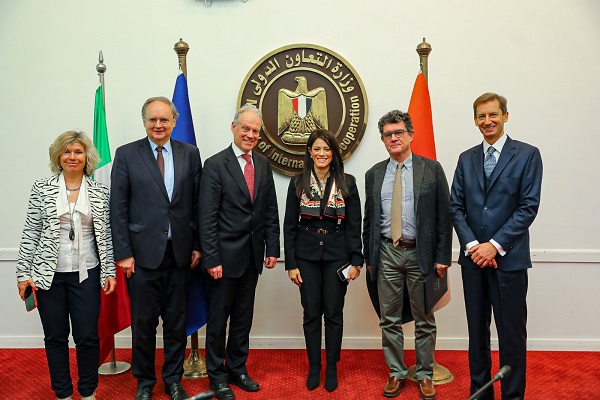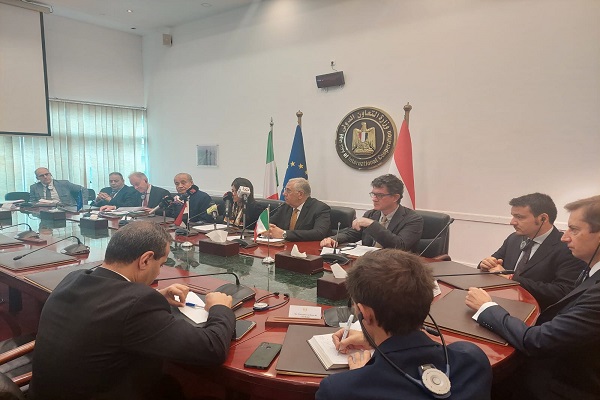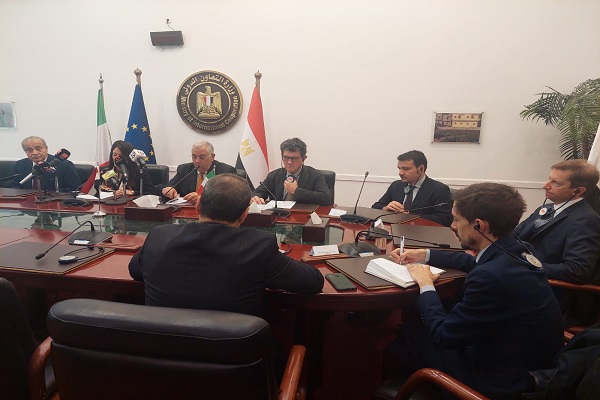AICS and the European Union have signed a contribution agreement worth 40 million Euros to support food security in Egypt. The signing was held last Thursday, the 30th of March, at the premises of the Ministry of International Cooperation.
The signature ceremony was witnessed by H.E. Rania El Mashat, Minister of International Cooperation, H.E. Ali Moselhi, Minister of Supply, H.E. Sayed El Quosair, Minister of Agriculture and the President of the Foreign Ministry’s office of the Egyptian-European partnership Amr Abo Eish. A high-level delegation from Italy has been represented in the meeting: Martino Melli, Head of the Italian Agency for Development Cooperation (AICS Cairo), H.E. Pietro Vacanti Perco, chargé d’affaires at the Italian Embassy in Cairo, Mastandrea Bonaviri Gianluigi, first secretary at the Italian Embassy in Cairo and Jacopo Tavassi, EU Portfolio Coordinator at AICS Cairo. From the EU side, Gert Jan Koopman, Directorate-General of the Neighbourhood and Enlargement Negotiations (NEAR), and Ambassador Christian Berger, Head of the European Union Delegation to Egypt participated in the signature ceremony. AICS will cooperate with the Ministry of Agriculture to support the production of wheat and grains and complete the information control system of wheat in Egypt in a program called EU Kafi “EU Support to Improve Cereal Crops Production in Egypt”.
During the signature ceremony, Melli stated that AICS is proudly the indirect manager of the EU Kufi project and guarantees support, participation, and commitment to the project’s execution and success. The Action aims at supporting Egypt in addressing the food crisis caused by several international and national factors, among which is the Russian-Ukrainian conflict, the subsequent inconsistent flow of supply of wheat to farmers and consumers, the volatility of prices on the international market and climate change.
Melli added that the programme’s primary beneficiaries include the rural communities of smallholder farmers, producers’ groups and producers’ organisations, including targeted rural women and family organisations. In addition, Kafi will benefit the most vulnerable segments of the population of Egypt and those at risk of food insecurity.

